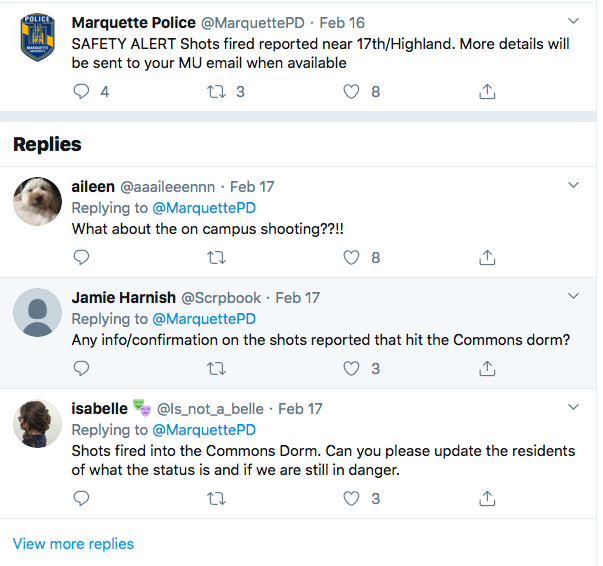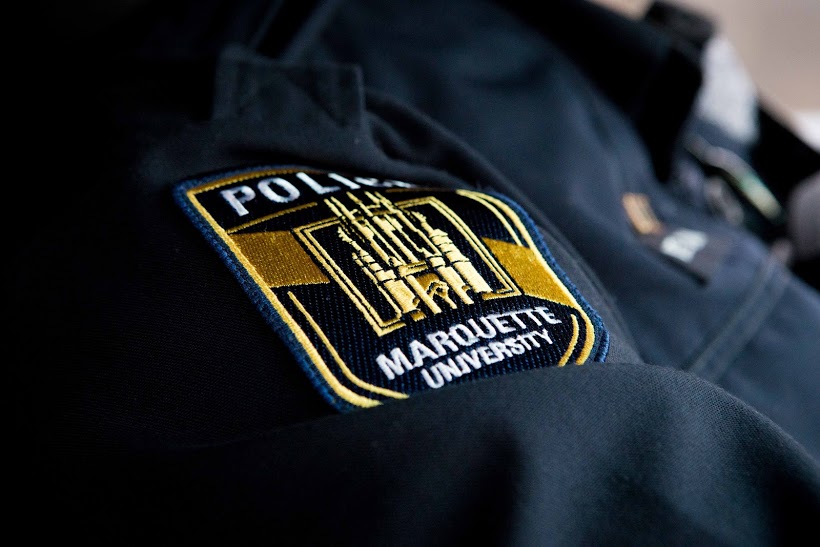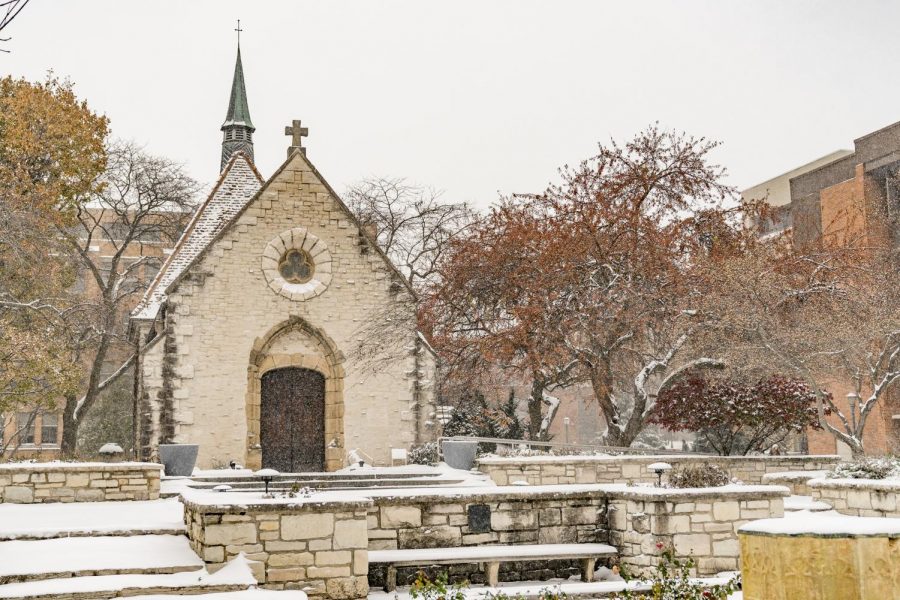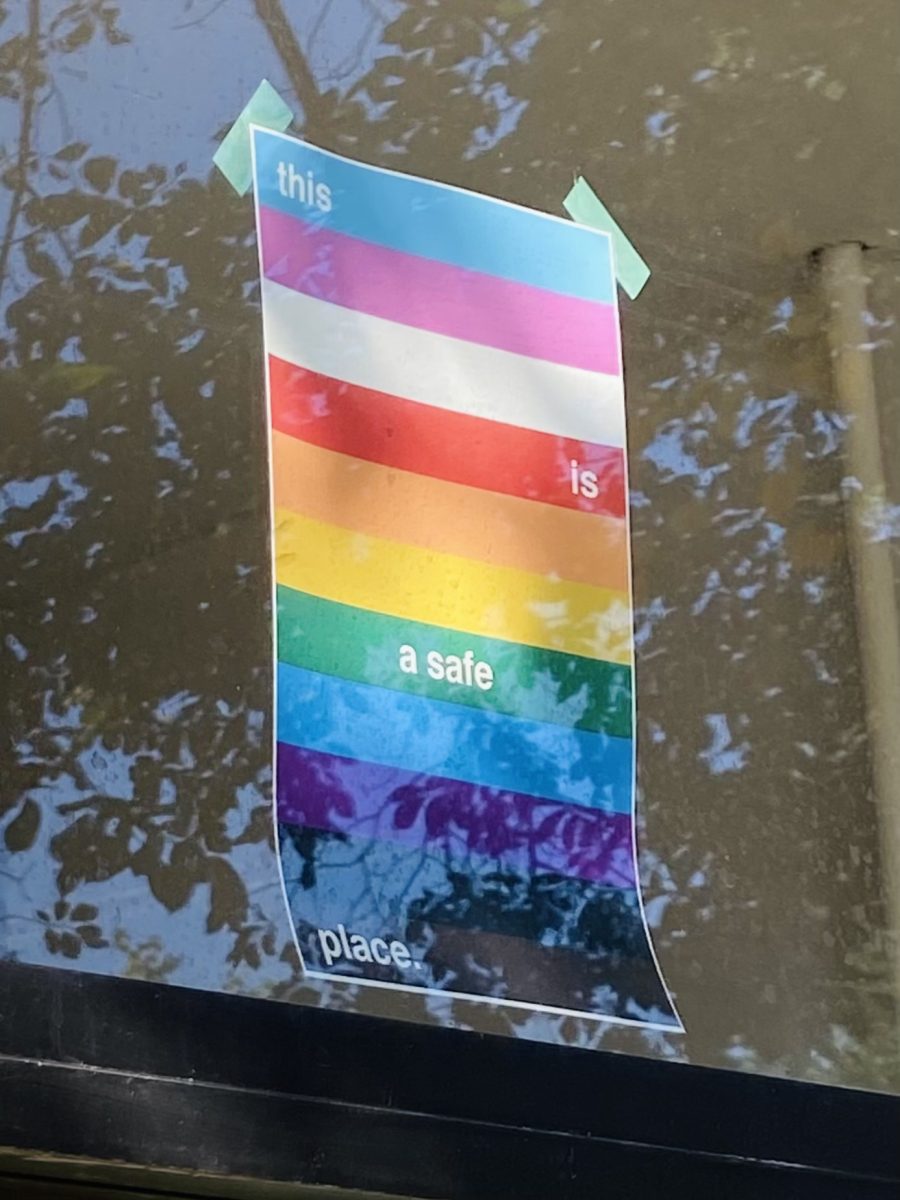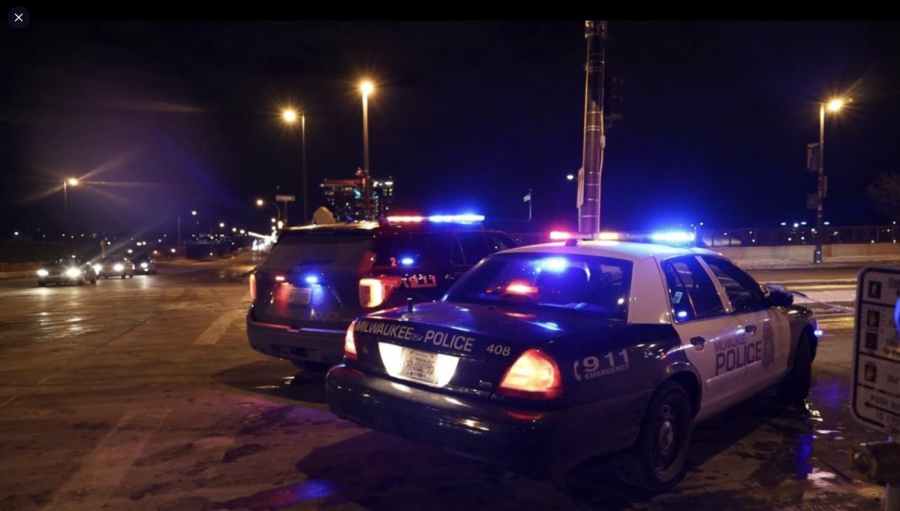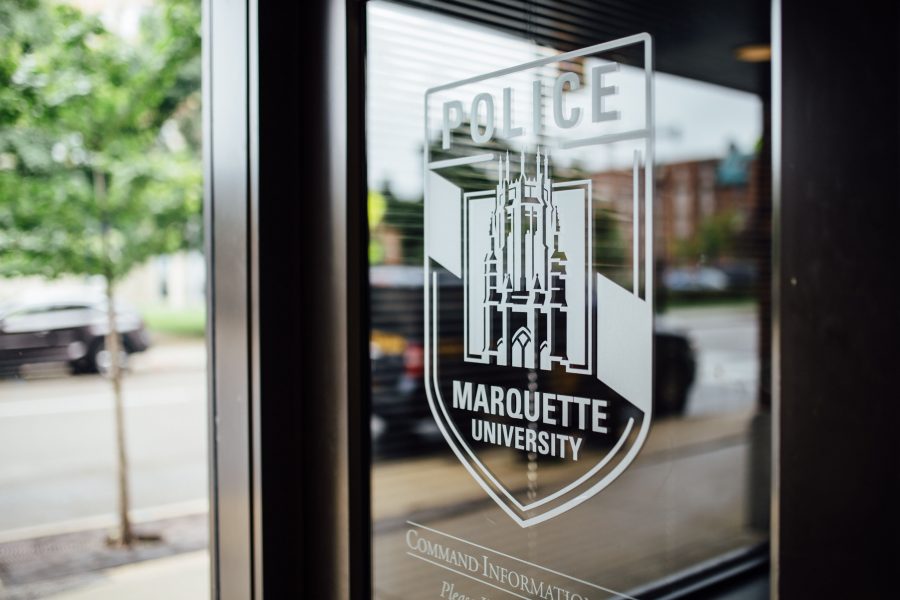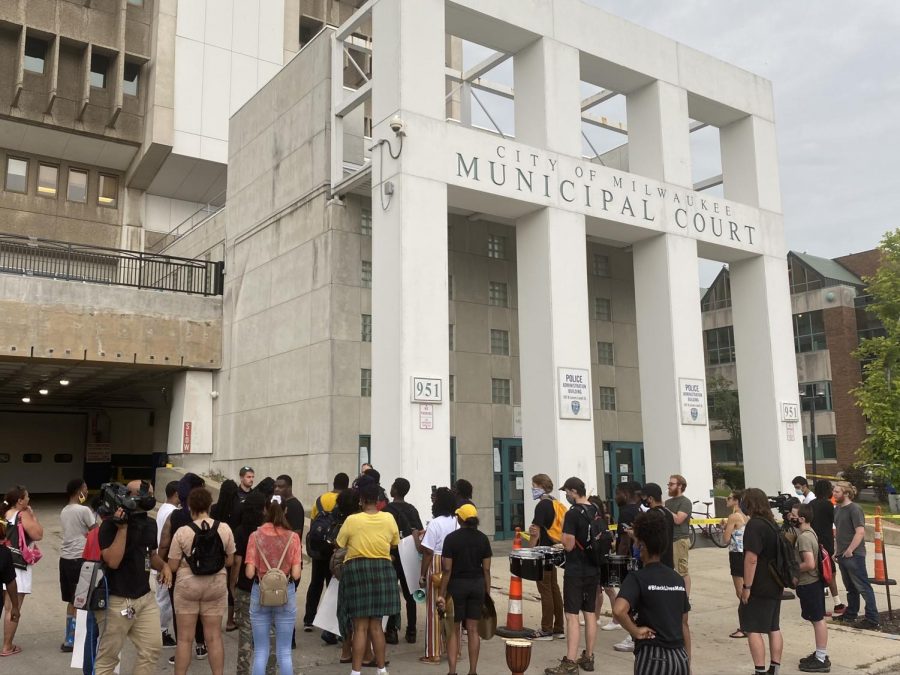Marquette University Police Department must prioritize clear and timely communication with community members when incidents occur on campus.
When a bullet entered a study room in Wells St. Hall in The Commons residence hall, MUPD sent out a brief safety alert nearly 40 minutes after the incident. The alert merely said fired shots were reported near N. 17th Street and W. Highland Avenue, but it did not state that a residence hall was affected.
A more detailed alert wasn’t released until nearly an hour and a half after the incident, sent via email to Marquette community members. The email included a link to the Marquette Today website, which confirmed that a stray bullet hit The Commons window.
The department claims it sends safety alerts when situations pose an “ongoing threat” to campus. MUPD Assistant Chief Jeff Kranz said ongoing or “active threats” can occur when MUPD is determining whether someone has been arrested.
The night of the shooting, Kranz told the Marquette Wire that the shooting “appeared to have happened outside of our area” and that Milwaukee Police Department would investigate it.
Kranz said the delay in response was due to the original call going to Milwaukee Police Department. After the call was transferred to MUPD, he said MUPD had to determine the location of the threat.
If the purpose of safety alerts is to provide students, staff and faculty with information during an incident to advise careful behavior, then a limited safety alert sent long after an incident serves no help.
Mere implementation of safety alerts is not sufficient. If MUPD is committed to providing alerts for community members, it must use them effectively by providing prompt alerts with details that prove meaningful to students, staff and faculty.
Shortly after the Feb. 17 shooting, people began posting social media images of the bullet hole in The Commons window. Others inquired about what exactly happened. MUPD’s lack of information added to the confusion and sense of panic.
In response to MUPD’s safety alert posted on its Twitter account, people responded with further questions that went unanswered until the more detailed safety alert went out. One Twitter user inquired, “Why was there an hour delay to notify students about a life threatening incident that happened ON OUR CAMPUS?”
Students began theorizing and checking in on one another through informal group chats. Some went to Wildfire for information, an app that provides updates about apparent unsafe situations, class cancellations and more through user-submitted content at specific universities.
The Marquette Wire did not receive university response about the incident until nearly 45 minutes after a reporter repeatedly called and then emailed spokespeople. It prevented the Wire from immediately confirming circulating information about the shooting.
Students, staff and faculty want a police department that not only effectively responds to incidents by quickly arriving on the scene, sensitively interviewing victims or witnesses, urgently searching for suspects and working with other local law enforcement agencies. Community members also want a police department that adequately and proactively communicates with them about dangerous situations.
While Kranz told the Marquette Wire that officers were transparent with residents on the eighth floor of Wells St. Hall about the incident, the rest of the campus was largely left without information to confirm or deny what they were seeing on social media and reading in group messages.
Lack of timely and specific communication about the shooting incident limited students’ knowledge of whether they had to take precautions against possible safety risks.
MUPD’s eventual detailed safety alert did not provide specific guidelines or suggested precautions for students to take in response to the shooting. Instead, it shared some repeated general advice that the department sends out when other incidents occur. The message seemed inauthentic and irrelevant to the Feb. 17 shooting.
Some of the emailed advice included traveling in pairs or groups and using LIMO shuttle services. These steps are not helpful in responding to a bullet entering a residence hall window.
The lack of specificity and adequate communication leaves students in the dark about what action to take in a shooting situation.
Kranz said the tips at the bottom of safety alerts are general but are reviewed and updated.
Without mindfully addressing different situations and communicating with the entire campus about changes to situations as they occur, students will be ill-prepared to respond.
In order to protect students and prevent further escalation of dangerous situations, MUPD must improve its response time and transparency with students who are not directly involved with incidents around campus. MUPD must ensure safety alerts are sent out in a timely manner, so when students see it, it is still relevant and they can act accordingly.
Without MUPD providing credibility to circulating claims, students, staff and faculty will continue to feel fearful and vulnerable to risks.

